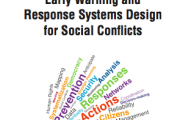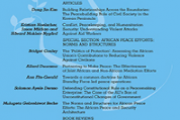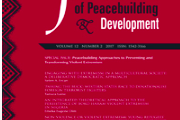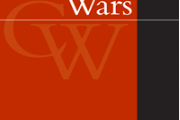Early Warning Early Response
Early Warning, Early Response Systems in Practice
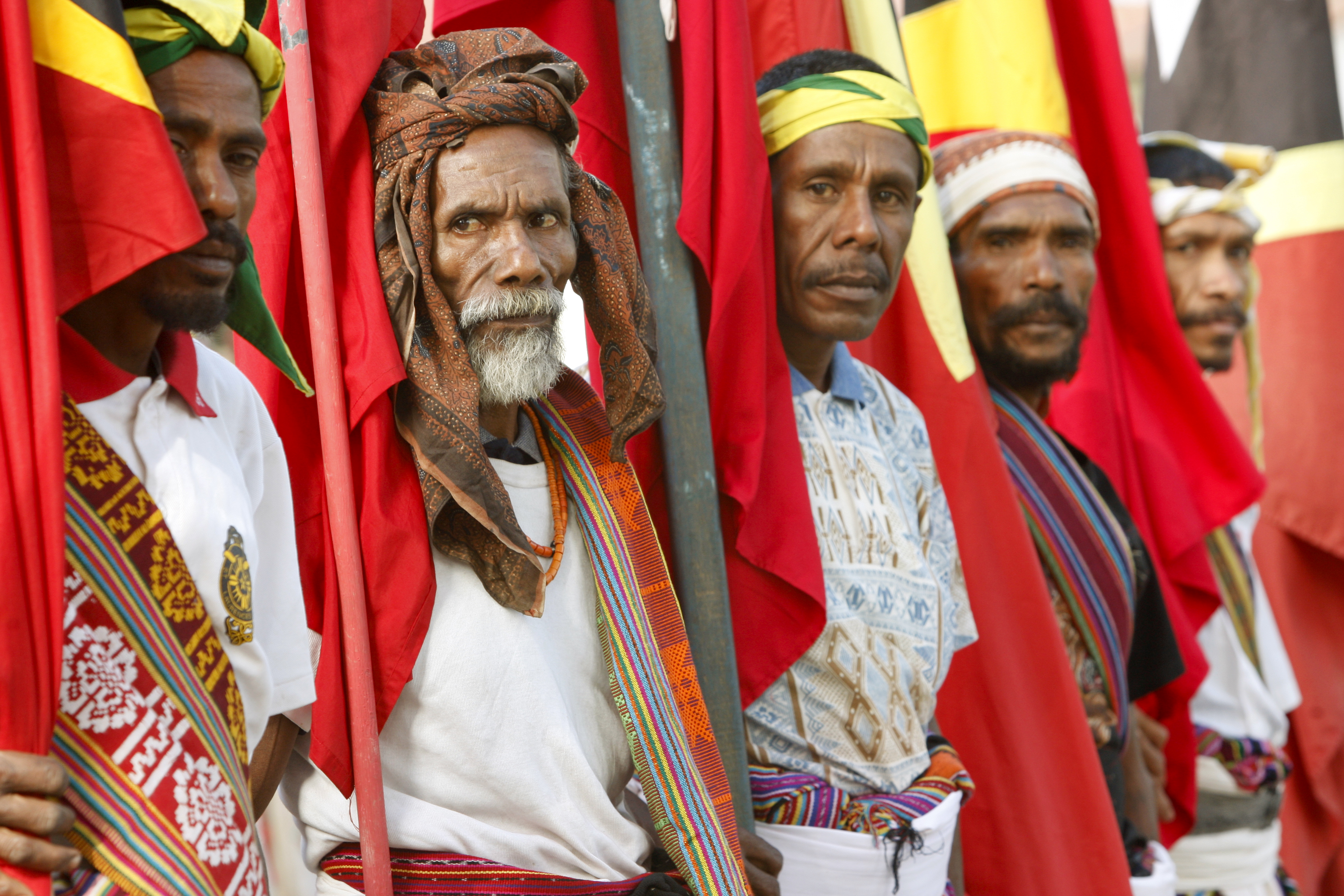 Photo: UN Photo/Martine Perret
Photo: UN Photo/Martine Perret
Sri Lanka
Soon after the signing of the 2002 Cease-Fire Agreement (CFA) to end a three-decade long civil war between the government of Sri Lanka and the Liberation Tigers of Tamil Eelam (LTTE), the Foundation for Co-Existence (FCE) implemented a citizen-based conflict early warning system for the volatile eastern province. The FCE early warning system was successful in preventing conflict from intensifying in the area.
The FCE early warning system strongly emphasized early intervention. It was a unique symbiosis of an information center, an early response unit, a group of highly motivated field staff and included youth leaders, journalists, local politicians, and community mobilizers. The information center collected daily reports of both conflicts and cooperation efforts from field staff, verified and coded the information, and transformed it into data that was entered into the FCE Early Warning (FCEWARN) database for analysis and forecasting. The FCEWARN combined data analysis with field staff analysis and continuous field monitoring and interaction with local actors by the early response unit.
Civil Society led EWER system in Timor-Leste
Timor-leste's civil society managed EWER system, Belun, was established in 2008 to respond to recurring violent incidents at the community level. The system is structured to achieve two intermediary objectives, namely, to strengthen programmatic and policy responses to conflict and to reinforce state and community preparedness and responses to conflict so as to minimize the potential for violent conflict.
The EWER system relies on a large contingent of volunteers to monitor and record conflicts in 43 of Timor-Leste's 65 Administrative Posts, and then relay the information to Belun's head office in Dili. The 86 volunteer monitors all receive regular training on conflict transformation, and are located within the communities they serve. The data is then analyzed and entered into Belun's EWER online database and portal. The data portal displays violent incident and conflict potential data from across the country, which is uploaded in real-time via tablet computers by Belun's 13 EWER Municipal Coordinators.
A people-to-people approach is a key element in the design of the Timorese EWER system. Engaging both state and civil society actors, the program has facilitated the establishment of community Conflict Prevention and Response Networks (CPRN) at the national and sub-district levels. Each CPRN is comprised of monitors and targeted local government, security, and civil society actors, including motivated individual citizens with a capacity to promote peace in their communities. Where possible, the networks are used as a means to provide support to existing organizations and individuals already working to advance peaceful responses to conflict. These networks have been supported to build their capacity to assist community members as they seek to address tensions, providing a critical contribution to security and peaceful development locally.
For more information visit Belun EWER data portal.
The role of women in preventing electoral-related violence: Uganda
In the run-up to the 2016 elections, Ugandan women played an active role in contributing to violence-free elections. In mid-2015, a civil society women’s coalition consisting of several women’s organizations convened the Women’s Situation Room (WSR), an early-warning and rapid response mechanism to address and mitigate any incidents or conflicts likely to lead to violence before, during and after the elections. The Women’s Situation Room is a platform for women, in collaboration with youth, to participate, actively and directly, in peace and conflict prevention processes, in accordance with UN Security Council Resolutions 1325 and 1820. This mechanism was first implemented during Liberia’s 2011 presidential election. The initiative’s objective is to serve as a non-political, non-partisan advocate for peaceful elections, inclusive of both women and youth. Adopted as a best practice by the African Union this model has been replicated in Senegal, Sierra Leone, Kenya, Nigeria, Uganda, Guinea and Ghana with positive results.
During the 2016 election period, the Ugandan WSR was supported by 10 Ugandan Eminent Women and five International Eminent Women from Africa. It responded to almost 1,500 reported incidents that could have led to violence or conflict. In February 2016, the Uganda WSR launched a strategy of shuttle diplomacy to encourage the principals and main political parties to engage in a dialogue on issues that were creating fear of insecurity and other long-standing problems related to Uganda’s political history and governance. The WSR initiatives focused primarily on mediation among the rival parties. The Eminent Women have shown leadership in their engagement with the two opposing political parties and have remained impartial and optimistic during the process, demonstrating the value of women’s participation in concretely addressing peace and security issues. Through the post-election mediation efforts, the EW has made new progress towards Uganda’s first political dialogue.
The West Africa Early Warning Network (WARN)
The West Africa Early Warning Network (WARN) is an integral part of the West Africa Preventive Peacebuilding Program coordinated by the West Africa Network for Peacebuilding (WANEP). WARN covers the entire Economic Community of West African States and sub-region including Cameroon and Chad. The concept of WANEP-WARN was given impetus by the conflagration of violent conflicts in West Africa from the late 80's to the mid 90's. WARN focused on establishing a regional civil society-based network for early warning analysis and intervention in the West Africa sub region.
WARN produces weekly early warning reports for West Africa, monthly early warning bulletins, policy briefings at ECOWAS, situation reports, quarterly early warning briefings at the AU Peace and Security Council and a publication on the state of peace and security in West Africa.
For more information visit WANEP's website.

